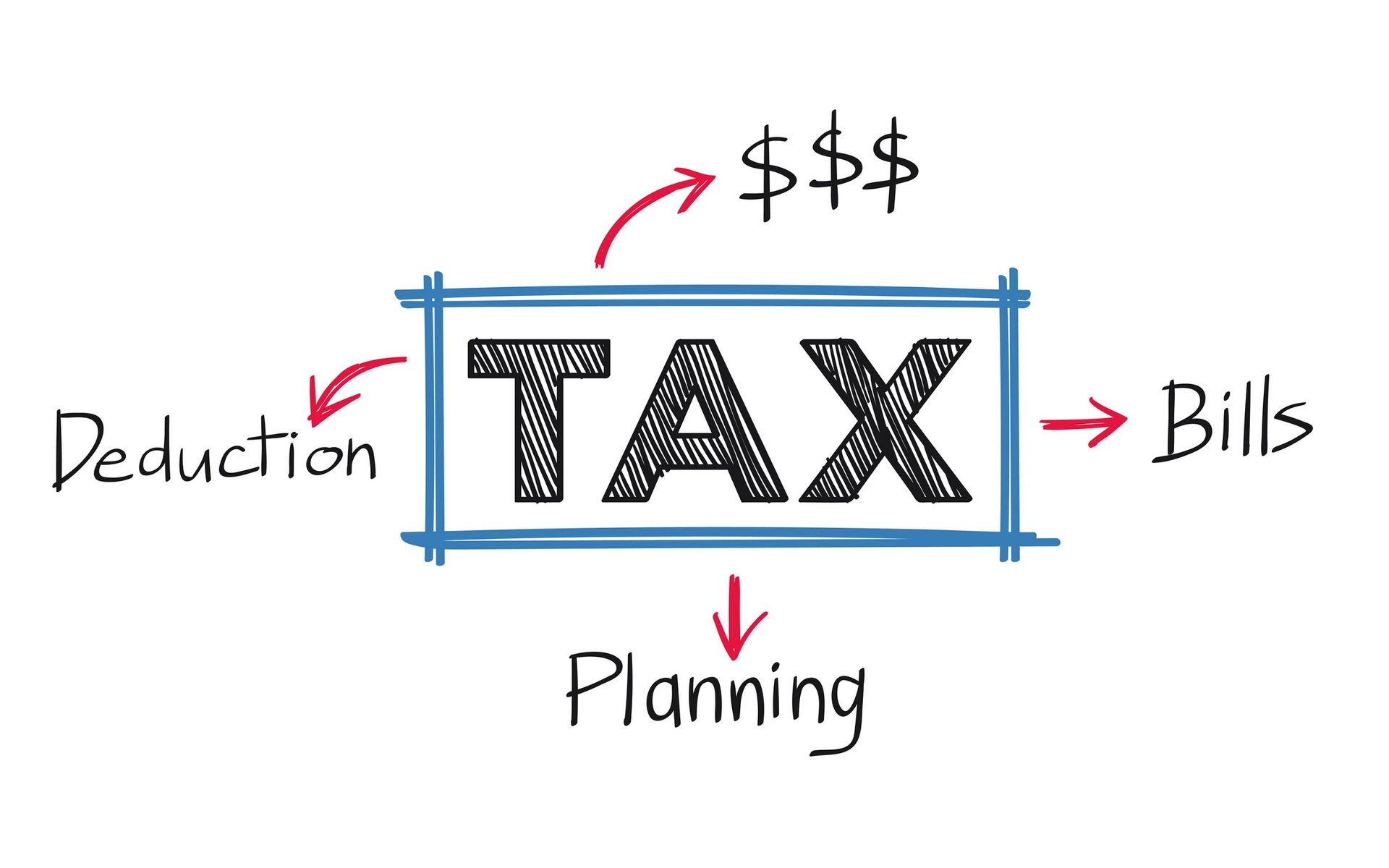Investment Taxation
Maximizing Returns Through Tax Strategies, Timing Sales, and Capital Gains Tax Management for Optimal Financial Growth.

Introduction To Investment Taxation And Its Significance
Understanding investment taxation is a crucial aspect of achieving financial growth and maximizing returns. Many investors overlook the importance of tax strategies and capital gains management, resulting in missed opportunities and unnecessary tax liabilities. By mastering investment taxation, you can unleash the true power of your investments and take control of your financial future. This blog will delve into the intricate world of investment taxation, providing insights and practical tips on topics such as timing sales, optimizing tax rates, and leveraging losses to your advantage.
Understanding Tax Strategies For Maximizing Investment Returns
Understanding tax strategies is essential for maximizing your investment returns. By strategically planning your investments, you can minimize tax liabilities and take advantage of various tax benefits. One effective strategy is timing sales to minimize the impact of capital gains taxes. By holding onto investments for at least one year, you may qualify for lower long-term capital gains tax rates.
Another strategy involves optimizing tax rates by carefully considering the sources of your income. Diversifying your investment portfolio can help you generate income from sources with different tax treatments, such as dividends or capital gains.
Additionally, leveraging losses can be a powerful tax strategy. By offsetting capital gains with capital losses, you can reduce your taxable income. This technique is known as tax-loss harvesting and can help mitigate the impact of taxes on your investment returns.
Capital Gains Management: A Key To Achieving Epic Financial Growth
Capital gains management plays a crucial role in achieving epic financial growth. With careful planning and execution, you can effectively minimize your tax liabilities and maximize investment returns. One aspect of capital gains management involves understanding the different tax rates for short-term and long-term investments. By holding onto investments for at least one year, you may qualify for lower long-term capital gains tax rates, enabling you to keep more of your profits.
Another essential strategy is tax-loss harvesting, where you strategically offset capital gains with capital losses. By selling investments that have experienced losses, you can reduce your taxable income and potentially save on taxes. This technique can be particularly valuable during times of market volatility.
In addition to timing sales and tax-loss harvesting, diversifying your investment portfolio can also play a significant role in capital gains management. By investing in a mix of assets, you can generate income from sources with different tax treatments, such as dividends or capital gains.
Techniques For Minimizing Taxable Income And Maximizing Deductions
When it comes to mastering investment taxation, one of the key components is minimizing taxable income and maximizing deductions. By employing effective strategies in this area, you can significantly reduce your overall tax liabilities and keep more of your hard-earned money.
One effective technique is contributing to retirement accounts such as IRAs and 401(k)s. By making regular contributions to these accounts, you can lower your taxable income while simultaneously building a robust retirement fund. Additionally, you may also be eligible for valuable tax deductions on these contributions, further reducing your tax burden.
Another strategy to consider is taking advantage of tax credits. Tax credits, unlike deductions, directly reduce your tax liability rather than reducing your taxable income. Examples of tax credits include the Child Tax Credit, the Earned Income Tax Credit, and the Residential Energy Property Credit. By understanding and utilizing these credits, you can significantly lower your tax bill.
Furthermore, it's essential to keep detailed records and documentation of your investment-related expenses. These expenses can include fees paid to financial advisors, brokerage fees, and expenses related to research and analysis tools. By accurately tracking and documenting these expenses, you can potentially deduct them from your taxable income, further reducing your overall tax liability.
The Role Of Tax-Efficient Investment Vehicles In Wealth Building
When it comes to mastering investment taxation and achieving epic financial growth, understanding the role of tax-efficient investment vehicles is crucial. These vehicles are specifically designed to minimize tax liabilities and maximize returns, making them invaluable tools for wealth building.
One popular tax-efficient investment vehicle is the index fund. Index funds are passively managed investment funds that aim to replicate the performance of a specific market index, such as the S&P 500. The key advantage of index funds is their low turnover, which results in fewer taxable events and lower capital gains distributions. By investing in index funds, you can potentially reduce your tax liability and maximize your long-term investment returns.
Additionally, another tax-efficient investment vehicle to consider is the Health Savings Account (HSA).
An HSA, or Health Savings Account, is a specialized financial storage device that offers tax advantages for individuals who are enrolled in high-deductible health insurance plans. Its purpose is to financially prepare these individuals by allowing them to allocate and invest money for prospective medical expenses. The unique advantage of an HSA lies in its triple layer of potential tax savings: contributions into the account are tax-deductible, growth within the account accrues free from taxation, and withdrawals made towards recognized medical expenditures avoid taxation as well. Leveraging this tool could yield considerable benefits for those navigating today's healthcare costs.
Municipal bonds, or "munis," are debt securities issued by state and local governments to fund public projects. They offer tax-efficient benefits, with interest income usually exempt from federal and state/local taxes.
Case Studies: Real-Life Examples Of Successful Tax Management Strategies
Here are real-life case studies that highlight successful tax management strategies and their impact on financial growth. By examining these examples, you will gain practical insights into how tax strategies and capital gains management can be leveraged to achieve epic financial growth.
Case Study 1: The Power of Tax Loss Harvesting
Meet John, a savvy investor who actively monitors his investment portfolio. During a market downturn, John discovered an opportunity to capitalize on tax loss harvesting. By selling certain underperforming investments at a loss, he was able to offset his capital gains, reducing his tax liability. John reinvested the proceeds from the sale into more promising investments, setting himself up for future growth.
Case Study 2: Maximizing Tax-Advantaged Accounts
Sarah, a diligent investor, understood the benefits of tax-advantaged accounts. She diligently contributed the maximum amount to her 401(k) and IRA, taking advantage of the tax-deferred growth and potential employer matching. By utilizing these accounts, Sarah reduced her taxable income and optimized her long-term wealth-building potential.
Case Study 3: The Tax Efficiency of Dividend Stocks
Michael, a conservative investor, preferred to invest in dividend stocks. He recognized the tax advantages of dividend stocks, which are typically subject to a lower tax rate than ordinary income. By strategically building a portfolio of high-quality dividend stocks, Michael enjoyed steady income while minimizing his tax burden.
Case Study 4: The Advantage of Holding Investments for the Long Term
Emily, a patient investor, understood the significance of long-term capital gains. By holding her investments for more than a year, Emily qualified for the lower long-term capital gains tax rates. This enabled her to reap the full benefits of her investment growth and keep more of her profits.
By examining these case studies, you can gain practical knowledge and inspiration for implementing tax-efficient investment strategies in your own financial journey. In the next section, we will explore how to identify the most suitable tax strategies and capital gains management techniques based on individual financial goals and risk tolerance. Stay tuned to unlock the full potential of tax-efficient investing.
Keeping Up With Changing Tax Laws And Regulations
To truly master investment taxation and unleash the power of tax strategies and capital gains management, it is crucial to stay updated on the ever-changing tax laws and regulations. The tax landscape is constantly evolving, and understanding the latest updates can make a significant difference in your financial growth.
Tax laws can impact various aspects of your investments, from the rate at which your capital gains are taxed to the availability of tax credits and deductions. By staying informed about changes in tax legislation, you can proactively adjust your investment strategies and maximize your tax efficiency.
To keep up with changing tax laws, consider the following:
- Regularly review tax publications and reputable sources for updates on tax law changes.
- Consult with a qualified tax professional who is well-versed in investment taxation.
- Attend webinars or seminars on investment taxation and tax strategies.
- Subscribe to newsletters or join online forums dedicated to investment taxation discussions.
By staying abreast of tax laws and regulations, you can ensure that your tax strategies and capital gains management techniques align with the most current requirements. This will help you avoid unnecessary tax liabilities and seize opportunities for further financial growth.
Conclusion: Harnessing The Power of Tax Strategies For Epic Financial Growth
In conclusion, mastering investment taxation and utilizing tax strategies can be the key to achieving epic financial growth. By staying updated on tax laws and regulations, you can make informed decisions that maximize your tax efficiency. Regularly reviewing tax publications, consulting with qualified professionals, attending educational webinars or seminars, and joining relevant online communities are all effective ways to keep up with changing tax laws.

Marc Boulanger
Marc views his accounting business as an extension of his family. And while he holds a Bachelor of Arts in Business Administration and Accounting and a Masters of Science in Accounting, he values traveling around the country with his wife of 30 years and 5 kids, Marc learned that communication is the key to effective team work.



